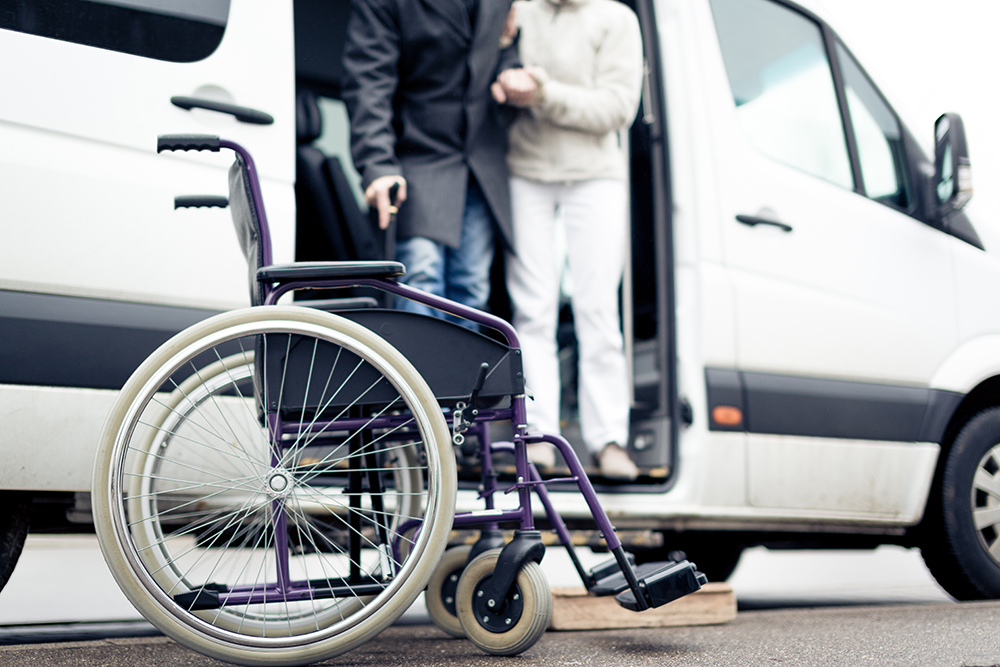
For individuals with disabilities, transportation can often be one of the most significant barriers to independence and mobility. Limited access to reliable transportation makes it challenging to attend medical appointments, engage in social activities, or simply run daily errands. Luckily, with advancements in technology and services tailored to design accessible journeys, transportation for the disabled is becoming easier.
If you're tasked with facilitating transportation for someone with disabilities, this blog provides a comprehensive guide. From evaluating transportation options to ensuring accessibility, here’s how to make each ride comfortable, safe, and stress-free.
Understanding the Barriers to Transportation for the Disabled
Before jumping into solutions, it’s crucial to identify the primary challenges disabled individuals face when it comes to transportation. Awareness of these issues will enable you to address them effectively.
1. Lack of Accessibility:
Many public transportation systems are not equipped to accommodate wheelchair users, visually impaired individuals, or those with limited mobility. Elevators, ramps, and accessible seating often fall short of demand.
2. Limited Specialized Transportation Services:
Access to private disabled transportation services is improving, but geographical limitations, like living in suburban or rural areas, often make these services unavailable.
3. Unsafe Environments:
Navigating crowded stations, uneven sidewalks, or boarding unsafe vehicles makes public transport challenging for individuals with disabilities.
4. Scheduling Hurdles:
Disabled individuals often need tailored service that aligns with their schedules and specific medical or social needs. Unfortunately, transport systems aren't always flexible.
With these barriers in mind, it's easier to explore solutions that truly help.
Key Options for Disabled Transportation
Whether you’re searching for solutions in Orlando, FL, or any other location, there are several options available to ensure safe and comfortable transportation for disabled individuals:
1. Public Transit Accessibility Features
Many public transit systems offer accessibility features, such as low-floor buses, wheelchair lifts, or braille instructions for visually impaired passengers. Check out your local transit authority’s website or hotline for details about accessible services nearby. Be sure to familiarize riders with accessibility features like ramp locations and priority seating areas.
Pro tip: For those in Orlando, FL, Lynx is the local transit provider, offering some accessible routes and paratransit services.
2. Disabled Transportation Services
For those who require a more personalized transportation method, private disabled transportation services are an ideal choice. Companies like Comfort Ride Transportation in Orlando, FL, specialize in non-emergency medical transportation (NEMT) equipped with wheelchair-accessible vehicles, trained drivers, and flexible booking options.
Disabled transportation services cater to passengers’ individual needs, whether it’s door-to-door service or support during long-distance trips.
3. Rideshare with Accessibility Options
Platforms such as Uber and Lyft increasingly provide accessibility features like Uber WAV (Wheelchair Accessible Vehicles). These services can be highly convenient when flexible scheduling is needed. However, availability may vary depending on your location, and drivers may require prior training.
4. Mobility Training Programs
Empowering individuals with disabilities to use conventional modes of transportation is another solution. Mobility training programs teach passengers skills like how to use buses, understand maps, or safely cross busy intersections. Check with community centers in Orlando to see if such programs are available.
5. Family and Caregiver Support
Sometimes the most reliable transportation option is provided by family members or caregivers. Families can coordinate schedules to ensure someone qualified is always available for transportation needs, particularly for important medical visits.
How to Choose the Right Transportation Option in Orlando, FL
Selecting the right transportation service is vital to ensuring convenience and safety. Here’s a simple checklist for making the right choice.
1. Assess Specific Needs
- Does the individual require wheelchair-accessible vehicles?
- Do they have medical equipment that needs to be transported?
- Are they traveling short distances or across town?
2. Ensure Safety Measures
Look for services that prioritize driver training in disability awareness and proper equipment handling (e.g., using wheelchair lifts or securing mobility devices).
3. Check Reviews and Reputation
For specific disabled transportation services in Orlando, FL, such as Comfort Ride Transportation, reviews can provide insight into customer experiences and reliability.
4. Verify Availability
Make sure the chosen service matches the client’s schedule. Some providers offer round-the-clock availability for those with medical emergencies or specific timing needs.
Tips to Enhance Accessibility for Every Ride
Whether you're organizing transportation or offering a ride yourself, these tips ensure a smooth and comfortable experience for disabled passengers:
1. Prioritize Comfort:
Make sure seats are padded, temperatures are controlled, and vehicle vibrations are minimized for individuals who may be sensitive to discomfort.
2. Communicate in Advance:
Discuss any special needs or equipment requirements directly with the transportation provider, including wheelchair dimensions or extras like oxygen tanks and walkers.
3. Plan Ahead:
Book rides early to avoid potential scheduling conflicts, especially during peak traffic times or holidays.
4. Double-Check Accessibility Features:
If you’re unfamiliar with the vehicle in use, verify its accessibility options (e.g., a functional chair lift or space for service animals) before the ride.
5. Provide Assistance:
Offer help in boarding, securing mobility devices, or navigating new areas, but always respect personal boundaries, asking permission first.
Why Choose Comfort Ride Transportation?
If you’re in Orlando, FL, Comfort Ride Transportation offers a dedicated disabled transportation service designed to make every customer feel valued and supported. What sets Comfort Ride apart?
- Wheelchair-accessible vehicles.
- Professional, trained drivers who specialize in working with individuals with disabilities.
- Flexible scheduling to fit your needs.
- Reliable service for non-emergency medical appointments, shopping trips, or even day outings.
Our commitment to comfort, safety, and community connection makes every ride a great experience.
Take the First Step Toward Accessible Transportation
Accessible transportation is about more than just getting from point A to point B; it’s about empowering independence and improving quality of life. Whether you're coordinating for yourself or a loved one, reliable transportation means freedom and opportunity.
If you're looking for a disabled transportation service in Orlando, FL, contact Comfort Ride Transportation today to schedule an appointment. Safe, smooth, and reliable transportation is just a call away!